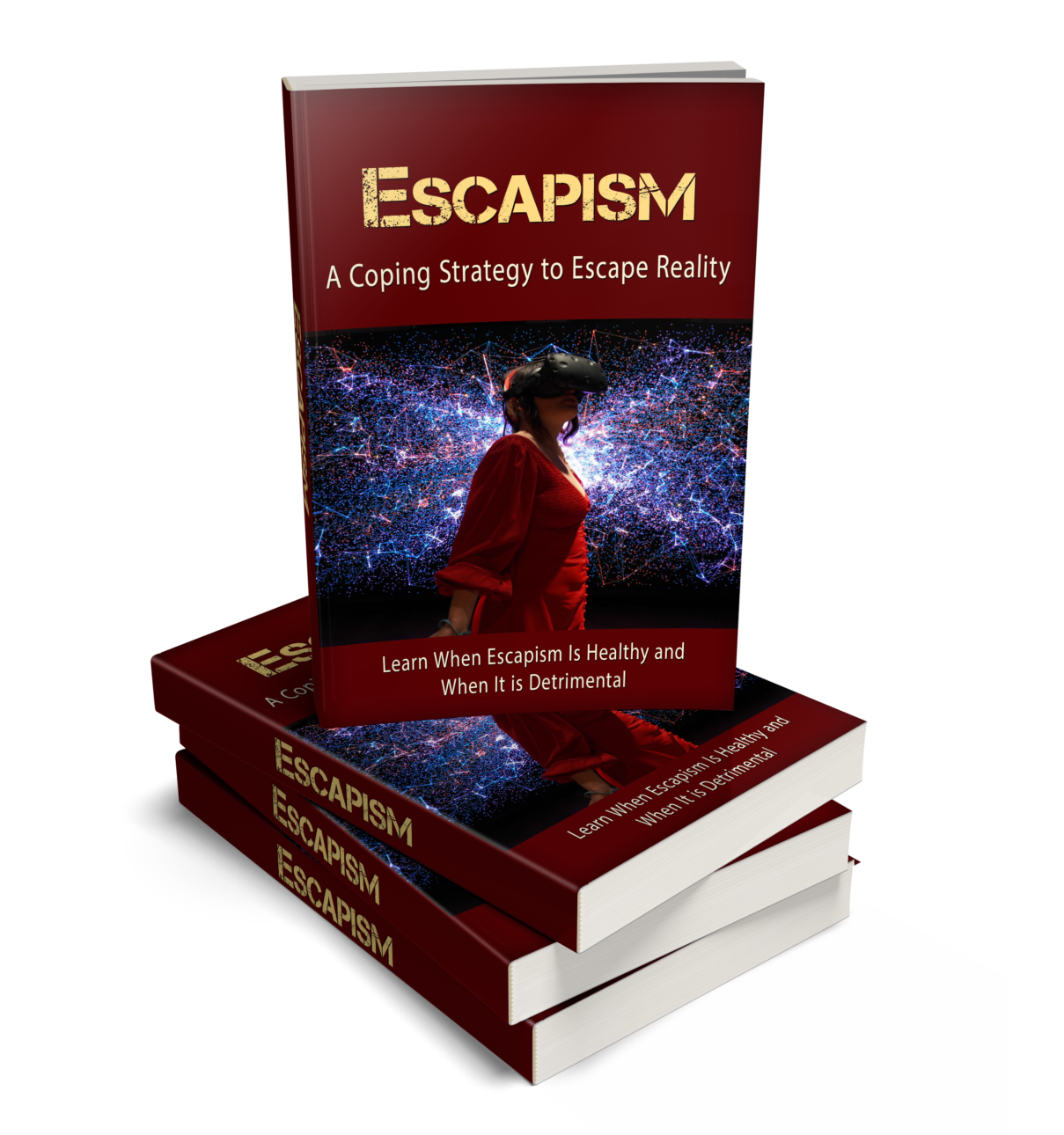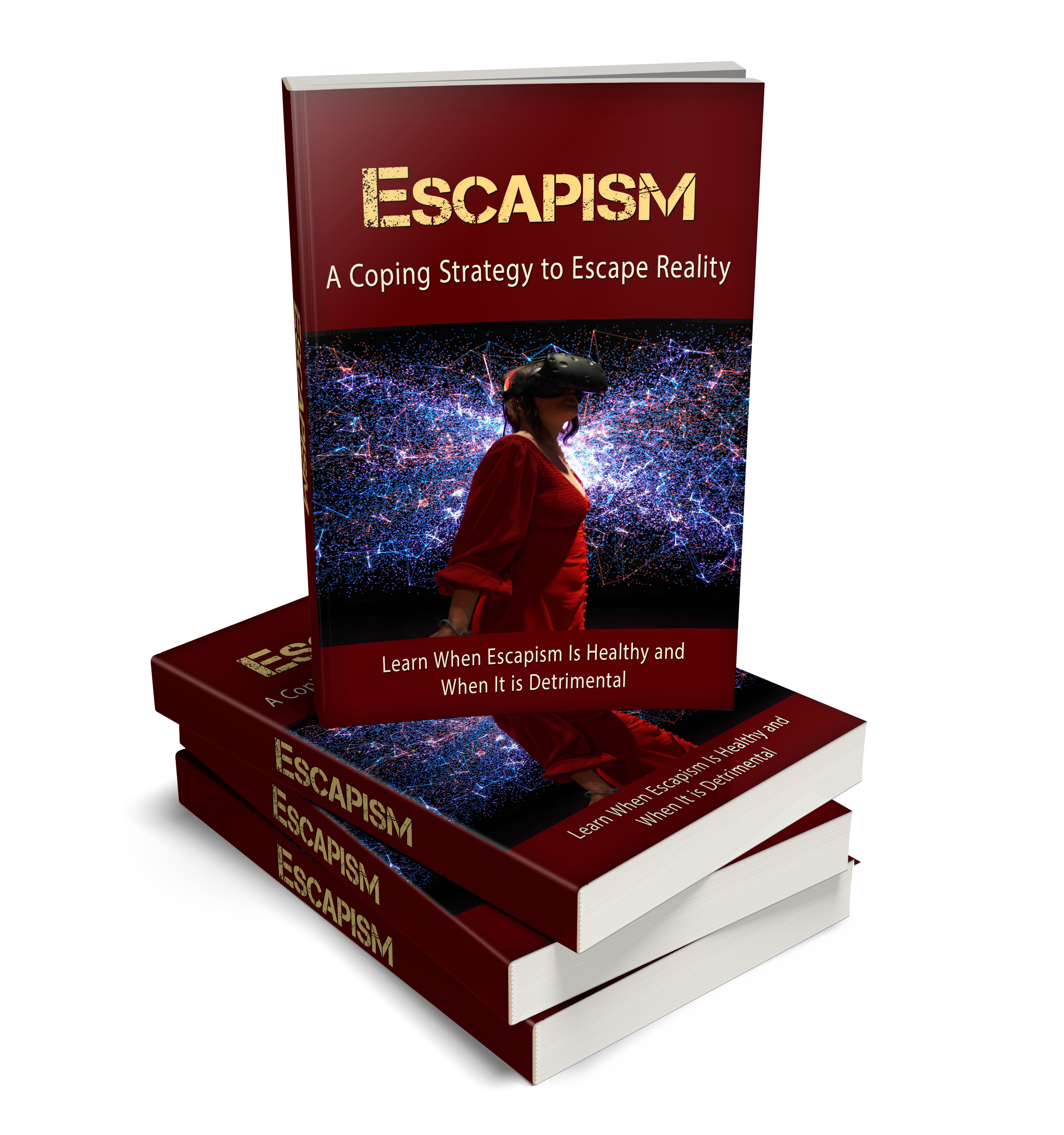Escapism is a coping strategy against stress in our lives. We use it to escape reality. It’s not necessarily where we want to dive into a fantasy world, although many do in different ways, we just want to stop focusing on what is causing us distress.
Escaping to a more desirable place that we feel is more peaceful, fun, or secure is tempting. In most cases, we try to escape from conflicts, problems, and responsibilities that cause us continued stress.
Escapism can be a way for us to exercise control over our emotions, whenever we feel that things are getting out of hand. In our fantasy world, we are free from problems and entirely in control of ourselves. We can control what happens to us during that time.
Resorting to escapism is not necessarily a negative behavior. It’s how you escape your current reality that is the problem. That’s why escapism can be a double-edged sword. Sometimes, escapism can be beneficial as it can help your emotional health, but sometimes it can be detrimental to your health too.
Where Escapism Is Healthy
Spending some time watching TV (not binge-watching) or reading a book, releasing some pent-up emotions in the gym or when doing some other physical activity, retreating to your quiet place where you can enjoy the tranquility, going for a walk to enjoy the sunshine, are all healthy forms of escape.
You don’t have to physically extract yourself from a particular place or situation, you just need to find a way to extract your mind from your stress and worry.
Escapism can be a good thing as it allows your mind to distance itself from the problem and allow you to give yourself the space and time to look for a solution and overcome challenges.
A healthy amount of escaping can help clear your thoughts and fine-tune your focus. Escapism can also give you a chance to rest your mind and body from all the tension. This can help you reignite your motivation and help you to stop procrastinating if you have been avoiding issues.
Escapism can also help you become happier, even if only temporarily. By diverting your attention to happier thoughts your mood will change. A happier mood can also allow you to see any problems in a better light, and make them appear not so bad after all.
Escapism can also help you become more skilled or productive. You can make use of the time when you want to destress by doing activities that will ultimately be beneficial to your growth.
Skill-building activities, such as reading, writing, playing sports, or arts and crafts, have several advantages for your mental and physical health.
You can use these types of skills to better your future, rather than to just pass the time. These skills can help you become more creative and provide outlets to express yourself and your emotions healthily and positively.
As you can see, escapism may help you see a light at the end of the tunnel, instead of feeling like you can’t get out of a hole.
When Escapism Is Not Healthy
As much as escapism has its benefits where it can be therapeutic and relaxing, it can also have negative effects on you and can be very detrimental to your health. We know that escapism is where we try to escape from our stress and problems. It’s how we run from our problems!
Unfortunately, how we run, or where we run to, can create more problems. Plus, the time we spend running away from reality can escalate a situation to where it can become more complicated or bigger than before we ran.
People who resort to escapism also deal with a degree of denial. If they fail to face the reality of their problem, they are often denying that any problem exists. This denial can be detrimental in many ways.
For example, if a problem is ignored in a close relationship, that often leads to resentment and, eventually, a lack of respect and love. A person may appear disinterested in the relationship if they are always seen to be using their ‘escapism’ coping strategy.
This strategy may be to scroll through their social media feeds, instead of focusing on the person they need to be focusing on. Therefore, denying any conflicts to be discussed hinders the chance of resolving them, which only further compounds the problem.
Another adverse effect is when the person’s health is at risk. Some people tend to delay going to a health professional despite years of persistent symptoms because of the lingering fear that something might be seriously wrong.
Refusing to believe that there is a possibility of suffering from a physical or mental health issue can be a time when a person tries to escape from this reality. It’s important to not run and hide in these instances, whether it is a ‘short-term’ escape or not.
Special Offer!
You Will Find This Course In You Earth Plus
Coming Soon
Escapism –
A Coping Strategy To Escape Reality




